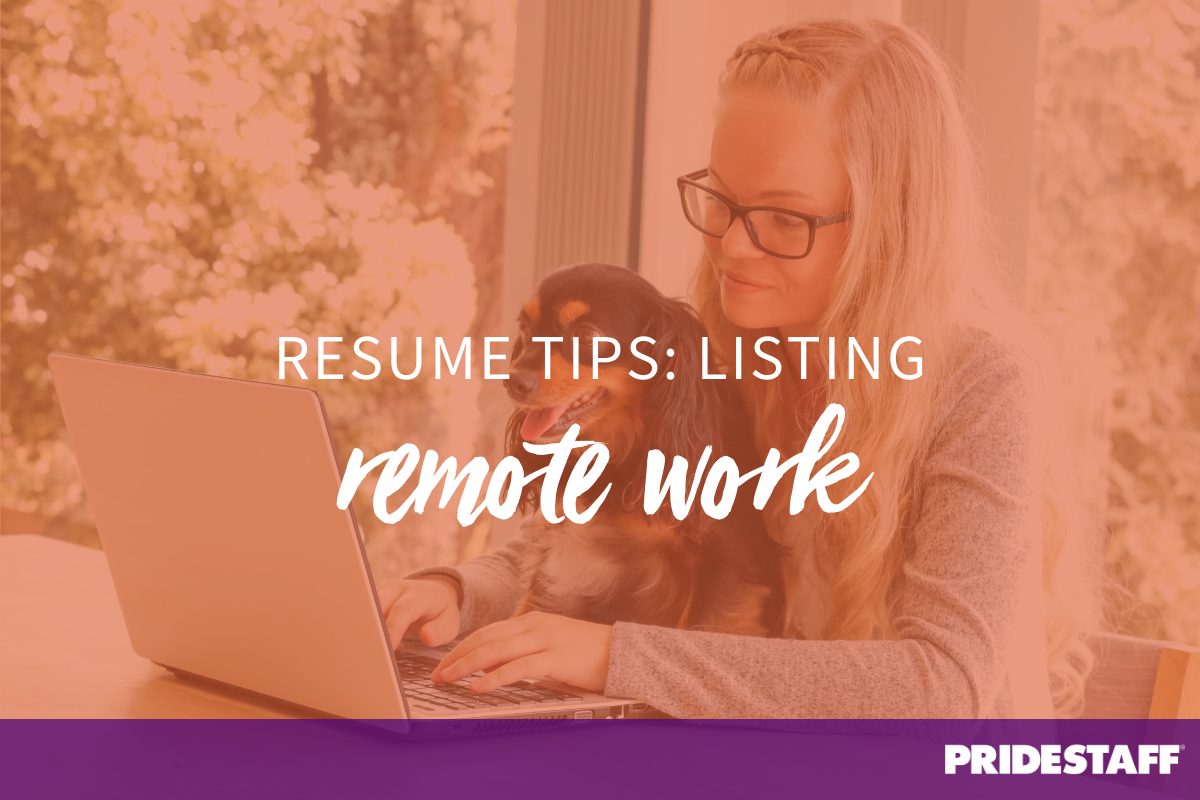How to List Remote Work on Your Resume

Remote work has exploded since the start of the pandemic:
- Data published by the Bureau of Labor Statistics (BLS) indicates that 31% of workers who were employed in early March switched to working at home by the first week of April.
- Another study conducted by IBM showed that more than half (54%) of workers polled would continue to work remotely full-time.
With remote work becoming the new norm, employers are now looking to hire people who have proven abilities to thrive at working from home.
If you’re one of the millions of Americans who telecommute (even part-time), you bring a wealth of skills, abilities, and personal qualities to the table. When you’re looking for your next job, what’s the best way to showcase your remote work experience?
How to List Remote Work on Your Resume
- Think like an employer. Hiring managers want evidence that you’ve successfully achieved your goals while working virtually and are prepared for the stressors it brings. While they may not specifically ask for this evidence in the job posting, it’s important your resume highlights the fact that you’re disciplined, self-motivated, tech-savvy, and an adept communicator. All of these are transferable job skills all employers look for in new hires.
- Thread your experience throughout your resume. Space on your resume is limited, so you need to get creative and make every word count. Look for ways to incorporate details into what’s already there:
- Summary of qualifications. Include a bullet that encapsulates your remote work experience: “2 years’ experience working 100% remotely.”
- Previous employment locations. Shift the location set up to include both the city/state of the employer’s location but note that you performed work remotely in one of your descriptive bullets. Alternately, skip the city/state and substitute the phrase “remote work.”
- Work history descriptions. Add phrases like “from home” and “remotely” to clarify which roles involved telecommuting, and detail how they were performed off-site.
- Job skills section. Working remotely is a skill, so add that to this section. Beyond that, consider the other proficiencies you’ve honed by working remotely. Did you master new technology? Develop new work processes? Take on functions or responsibilities, even temporarily? Inventory the skills your remote work requires and expand this section accordingly.
- Add a new section. If space allows, dedicate a Remote Work Experience section to build a hiring manager’s confidence in your abilities. In this section, you can detail the hard and soft skills that make you successful at remote work and the technology tools you’ve learned (e.g., cloud-based apps, virtual collaboration tools, video conference technology).
- Showcase your remote work experiences in other places. Your resume is just one tool for highlighting your telecommuting talents. Here are a few other ideas to put your best foot forward:
- Expand your personal brand. Review and update the way you “market” yourself professionally. In this post, we review how to build a Unique Selling Proposition and differentiate yourself as a standout candidate.
- Update your social media profiles. Make sure they highlight your telecommuting proficiency.
- Publish a blog post. Blog about the skills you’ve acquired, lessons you’ve learned, challenges you’ve faced, and things you’ve accomplished while working remotely. Then share the content on social media to maximize your visibility.
Need a job now?
Apply with PrideStaff. With offices across the nation, we have great jobs in:
- Accounting / Finance
- Administrative / Clerical / HR
- Customer Service / Call Center
- Healthcare / Medical
- Information Technology
- Insurance
- Legal
- Management
- Manufacturing
- Sales / Marketing
- Skilled Trades
- Warehouse / Distribution / Logistics
Contact the PrideStaff office in your area to learn more or search for local job opportunities here.



